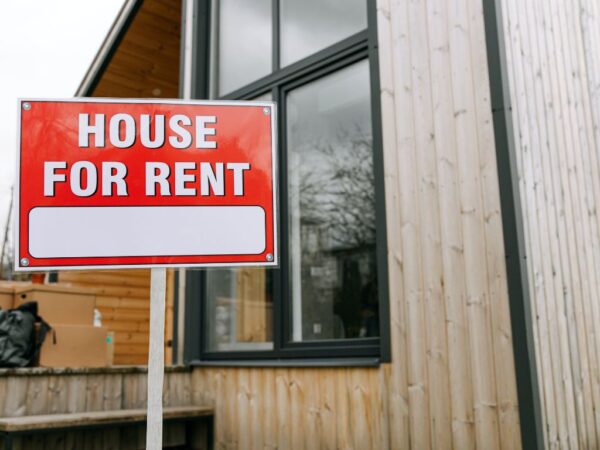5 Simple Strategies for Investing in Real Estate as a Retiree
November 1, 2023
Retirement is a time for relaxation and pursuing passions, but it’s also a period when securing your financial future becomes a top priority. According to The National Pensions Regulatory Authority (NPRA) that regulates both public and private pension schemes in Ghana, the statutory retirement age in Ghana is 65 years for both men and women.
An article titled “Lived Experiences of the Elderly in Ghana: Analysis of Ageing Policies and Options for Reform” reveals that the elderly population faces several challenges including poverty, neglect, and lack of access to regular income support. Despite intervention programs introduced by policy makers in 2008 to provide income security in old age and a cash transfer program to lift the poorest among the elderly out of poverty, evidence suggests that the elderly population continues to face several challenges.
The above report should serve as a wake up call to all individuals especially those in the working class to avoid suffering from a similar fate.
According to the National Association of Real Estate Investment Trusts (NAREIT), pension, endowment, and foundation funds control over $12 trillion in total assets, with approximately $900 billion invested in real estate. This shows that real estate is an important component of a diversified investment portfolio for pension funds.
We would like share some of the simple strategies pensioners can adopt to invest in real estate:
1. Short – Term Rentals (e.g. Airbnb)

Investing in vacation rentals can be both a passive and an active income strategy for retirement. Short-term rentals, often associated with platforms like Airbnb, involve renting out a property for a brief period, typically a few days to several weeks. This strategy is perfect for retirees looking to maximize their real estate investments while having the flexibility to use the property for personal getaways when desired.
Properties used for short term rentals are mostly fully furnished. Short term rentals can generate higher rental income in the short run as compared to traditional long – term leases. Other notable platforms for short term rentals include Booking.com, VRBO, etc.
Investing in short-term rentals can be an attractive and versatile strategy for retirees for several reasons:
- Income Potential: Short-term rentals can generate significant income, especially in high-demand tourist destinations.
- Personal Use: As the property owner, you have the flexibility to use the property for personal vacations when it’s not booked by guests.
- Property Appreciation: Over time, your property may appreciate in value, potentially resulting in capital gains.
This investment strategy requires research on the location, potential rental income, and managing the property and guests, pricing and marketing, furnishing and amenities, property management, etc. There is a need for responsive guest management as these properties are offered to diverse guests for short stays.
2. Property Flipping

Property flipping, also known as “house flipping,” is a real estate investment strategy where you buy a property with the intention of reselling it quickly, often after making strategic improvements. In brief, property flipping is about acquiring properties in need of renovation to make necessary improvements and selling them at a higher price to generate profit.
Property flipping can be a simple and lucrative real estate investment approach as it offers retirees the potential for substantial gains in a short period. This is an excellent strategy for people who have the expertise to identify the right property and the skills to complete renovations efficiently.
Property flipping can be an appealing strategy for retirees for several reasons:
- Short-Term Investment: Flipping is typically a short-term commitment, allowing retirees to see a return on their investment relatively quicker.
- Profit Potential: By buying low, making strategic improvements, and selling high, retirees have the potential to make a significant profit in a short period.
- Flexibility and Control: You can choose when and where to invest amidst several properties
Some of the steps for a successful property flipping include renovations, quick turnaround, profits, property selection, market research, budget and financing, etc. It’s crucial to manage your finances as renovations in property flipping can be costly.
3. Rental Properties

Rental properties are among the most straightforward and rewarding real estate investment options for retirees. Rental properties are real estate assets purchased with the primary purpose of renting or leasing them out to individuals, families or entities. In addition to enjoying the rights and benefits as a property owner, rental properties offer an enthralling way to generate additional income through the traditional long term lease. The rental properties can be residential or commercial.
Investing in rental properties can be an attractive strategy for retirees for several reasons:
- Reliable Income: Rental properties can offer financial stability through the generation of a steady source of rental income.
- Diversification: Real estate diversifies your investment portfolio helping to reduce risk
- Hedge against inflation: The rental income generated from the property helps you to maintain your purchasing power.
There are steps or approaches to investing in rental properties. It includes market research, proper selection, property management, tenant selection, legal compliance, budget and financing, etc. While rental properties offer numerous benefits, they also come with challenges such as property maintenance, dealing with tenants, and market fluctuations. It’s essential to be prepared for these potential challenges.
4. Buy-&-Hold Strategy

Another simple and reliable strategy for pensioners is the “Buy-and-Hold” approach. The Buy-and-Hold approach, as the name suggests, involves purchasing real estate properties with the intention of holding onto them for an extended period, typically many years or even decades. The primary goal of this strategy is to enjoy rental income from the property while also benefiting from property appreciation over time.
Adopting the Buy-and-Hold strategy is very essential to retirees for various reasons:
- Long-Term Growth: The strategy leverages the potential for long-term property appreciation, which can lead to substantial capital gains over the years.
- Property Ownership: You have the security of owning a tangible asset, which can provide peace of mind during retirement.
- Reduced Stress: With long-term tenants and less frequent property turnover, retirees can enjoy a more relaxed and hassle-free investment experience.
With proper planning and property management, challenges such as property maintenance and dealing with difficult tenants, can significantly be minimized.
5. Real Estate Partnership

Real estate investment can be a fantastic way to achieve your financial goals, and one strategy that is gaining popularity among retirees is forming real estate partnerships.
A real estate partnership is a collaborative venture where two or more individuals come together to invest in real estate properties. Each partner contributes financially and may also bring their unique skills and expertise to the table. The goal is to combine resources and knowledge to make profitable real estate investments.
Investing in real estate partnerships can be a flexible strategy for pensioners for several reasons:
- Shared Financial Responsibility: Partnerships allow you to share the financial burden of property acquisition and ongoing expenses, reducing individual financial stress
- Reduced Workload: Partnerships can mean sharing the responsibilities of property management, maintenance, and tenant relations, making the investment process less demanding for retirees.
- Shared Risks and Rewards: Risks and rewards are distributed among partners, making it a less risky venture for retirees.
Some of the steps involved in forming a real estate partnership include identification of potential partners, discussion of roles and responsibilities, legal structure, funding and financing, management plan, property selection, etc. Having a well-structured partnership agreement and trustworthy partners can enable you to navigate the world of real estate investments that allows pensioners enjoy a financially secure retirement
CONCLUSION
In conclusion, retirees have several simple and profitable strategies to choose from when it comes to real estate investment. The key is to select the strategy that aligns with your financial goals, risk tolerance, and retirement lifestyle. It’s also essential to seek professional advice when needed. With the right approach, real estate investment can significantly enhance your retirement financial security and overall quality of life.